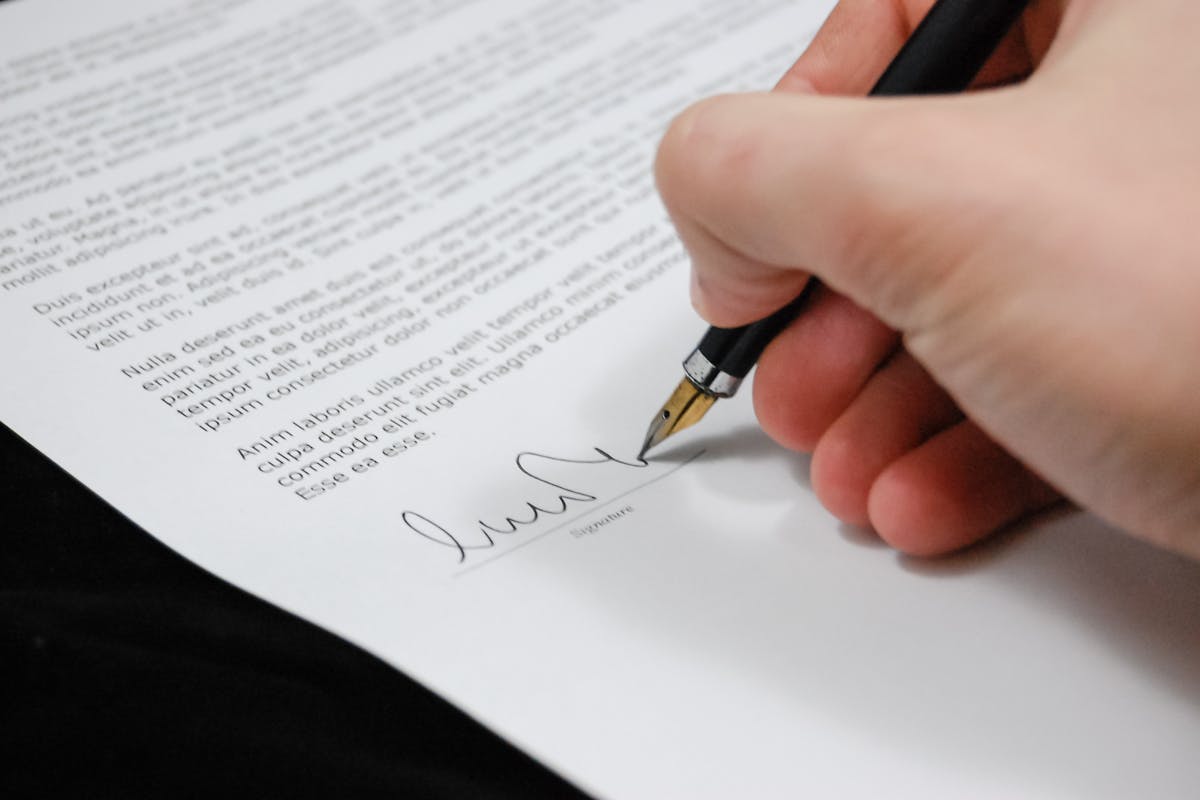
Accessing phone records can be a critical factor in resolving legal disputes. These records often contain vital evidence, such as call logs, text messages, and even location data, that can substantiate claims or clarify events in various types of cases.
Whether it’s a divorce proceeding, a criminal investigation, or a civil lawsuit, phone records can play a pivotal role in determining outcomes. However, obtaining these records is far from straightforward.
You cannot simply contact a telecom provider and request this information—it requires adherence to strict legal processes, the cornerstone of which is knowing how to subpoena phone records.
This is especially relevant when you consider process serving in California, as the proper delivery of legal documents is crucial to ensuring that all parties are informed and can respond appropriately.
Let’s explore the essential legal framework for obtaining a subpoena through phone records, including practical insights on costs and timelines.
Step-by-Step Guide to Subpoenaing Phone Records
A subpoena is a legal document issued by a court that compels an individual or entity to provide specific information or appear in court to testify. When it comes to phone records, a subpoena serves as the formal mechanism to access data held by telecom companies.
Here is a step-by-step guide to help you navigate the process of subpoenaing phone records:
- Identify the Service Provider
Determine which telecom company holds the records you need. Major providers like Verizon, AT&T, and T-Mobile have dedicated legal compliance departments that handle subpoenas. Verify the correct address and contact information to ensure proper delivery. - Draft the Subpoena
Prepare a subpoena document that includes the following:- The full name and case number.
- A detailed description of the records requested, such as call logs or text message details.
- Please provide the specific time period for the requested records, along with the name and address of the telecom provider’s legal department.
- Ensure that the subpoena complies with your jurisdiction’s rules. Many courts provide templates to assist with drafting. If you require further guidance, consider seeking legal consultation in California to ensure full compliance with local regulations.
- File the Subpoena with the Court
Submit the subpoena for court approval. Pay the necessary filing fees and retain copies of all documents for your records. - Serve the Subpoena
A professional process server is used to deliver the subpoena to the telecom provider. Services like DR Legal Process specialize in ensuring that subpoenas are served accurately and promptly. - Follow Up on Compliance
After serving the subpoena, contact the phone company to confirm receipt and track the status of your request. If the company does not comply, consider filing a motion to compel with the court.
Tips for Navigating the Process as a Pro Se Litigant

For individuals representing themselves, subpoenaing phone records can be challenging. Here are some tips to help:
- Use Court Resources: Many courts offer self-help centers and legal templates for drafting subpoenas. Take advantage of these resources.
- Research Thoroughly: Familiarize yourself with your jurisdiction’s rules and privacy laws to avoid mistakes. This knowledge is crucial for ensuring compliance and protecting sensitive information.
- Seek Professional Help: Even without an attorney, services like DR Legal Process can handle filing and serving subpoenas on your behalf. Additionally, these services can guide the legal requirements and procedures involved in the subpoena process.
- Double-check your work: To avoid delays, ensure all documents are accurate and complete, and consider having a colleague review them for an additional layer of verification.
Understanding the Role of Subpoenas in Accessing Phone Records
A subpoena is a tool that courts use to enforce the disclosure of evidence relevant to a case. In the context of phone records, subpoenas allow litigants to request information such as:
- Call Logs: These provide details about incoming and outgoing calls, including phone numbers, timestamps, and the duration of each call. Call logs can help users track their communication patterns and identify frequently contacted numbers. Additionally, they may assist in managing phone usage and understanding call-related expenses.
- Text Message Records are logs showing the date, time, and recipient of sent or received messages. They provide valuable insights into communication patterns and can be useful in various contexts, such as legal investigations or personal tracking. Additionally, they often include metadata that can reveal trends in interactions over time.
- Data Usage: Information about internet or app activity tied to a specific phone number. Data usage includes metrics such as the amount of data consumed for browsing, streaming, and app usage. This information can help users monitor their consumption and manage their mobile plans more effectively.
- Location Data: The device’s geographic movements are based on cell tower connections. The location data can provide insights into user behavior and patterns over time. By analyzing the geographical movements, businesses can tailor their services to better meet their customers’ needs.
This information can be essential in a variety of legal contexts. For instance, in a criminal investigation, call logs and location data might help establish an alibi or connect a suspect to a crime scene.
In family law cases, such as divorces or custody disputes, phone records can corroborate claims of infidelity or demonstrate harmful behavior. If you need to obtain these records legally, understanding how to subpoena phone records is crucial.
However, privacy laws, such as the Stored Communications Act (SCA), protect phone records from unauthorized access. These laws are designed to ensure that sensitive personal information is not shared without proper legal authorization. A subpoena provides that authorization, but only if it complies with strict court rules.
The Costs Associated with Subpoenaing Phone Records
One of the first considerations when subpoenaing phone records is cost. The total expense can vary based on court fees, service fees, and phone company charges, as detailed in the breakdown of typical costs involved.
Court Filing Fees
The process begins with filing the subpoena in court. Filing fees can range from $15 to $400, depending on the jurisdiction and the type of case. Some courts may waive this fee for individuals who qualify for financial assistance, making it more accessible for those with limited resources.
Process Serving Fees
After court approval, a subpoena must be served to the phone company by professional process servers, typically costing between $50 and $200 based on location and complexity. In states like California, hiring experienced process servers ensures timely and accurate delivery.
Administrative Fees Charged by Telecom Companies
Telecom providers often charge fees to retrieve and compile the requested records. These fees can range from $25 to $150 or more, depending on the scope of the request and the provider’s policies. These administrative charges cover the cost of locating, retrieving, and securely transferring the data.
Additional Costs
If you require legal assistance, such as hiring an attorney to draft or review the subpoena, or if disputes arise, you may incur additional costs. Court motions or appeals to resolve challenges can also add to the expense.
How much does it cost to subpoena phone records? In total, subpoenaing phone records can cost anywhere between $100 and $750. Planning for these expenses in advance and ensuring that the subpoena is filed correctly the first time can help save both time and money.
How Long Does the Process Take?
The timeline for obtaining phone records through a subpoena depends on several factors, including court procedures, the telecom provider’s compliance process, and the complexity of the request. If you’re wondering: “how long does it take to subpoena phone records?”, here’s a breakdown of the timeline:
Court Approval
The first step is filing the subpoena with the court, which can take from a few days to several weeks, depending on the court’s workload. Some courts require additional documentation or a judge’s signature, which can further extend the timeframe.
Serving the Subpoena
After court approval, the subpoena must be served to the telecom provider. Professional process servers can expedite this step, as they are experienced in delivering legal documents and ensuring compliance with court rules.
Response from the Phone Company
Telecom providers generally take 2 to 4 weeks to process subpoenas, depending on their workload and the complexity of the records requested. Requests for detailed data, such as text message logs or location information, may take longer to fulfill.
Potential Delays
If the phone company challenges the subpoena, citing privacy concerns or insufficient documentation, the process can be further delayed. Resolving these disputes may require additional court motions, which can extend the timeline by several weeks or even months.
The process typically takes 4 to 8 weeks, but proactive communication with both the court and the telecom provider can help minimize delays and ensure a smoother experience.
Can You Subpoena Phone Records Without an Attorney?

Subpoenaing phone records without an attorney is possible, especially for individuals representing themselves in court, also known as pro se litigants. However, this approach requires careful attention to detail and a thorough understanding of legal procedures. Here’s what you need to know:
Legal Knowledge
Drafting and filing a subpoena involves legal terminology and formatting that can be challenging for those unfamiliar with court procedures. Errors in the document can result in the subpoena being rejected, delaying the process.
Privacy Laws
It’s essential to comply with privacy laws, such as the Stored Communications Act. Overstepping legal boundaries when requesting records can result in penalties or the exclusion of evidence from your case.
Dispute Resolution
If the phone company resists the subpoena, you may need to file additional motions or argue your case in court. Navigating disputes without legal expertise can be challenging and time-consuming, so it’s advisable to seek assistance from a qualified attorney.
Resources for Self-Represented Litigants
Even without hiring an attorney, there are resources available to simplify the process. Courts often provide self-help centers and free templates for drafting subpoenas. Additionally, professional services specialize in filing and serving subpoenas, helping you navigate the process more efficiently.
Accessing Critical Evidence Through Subpoenas
Subpoenaing phone records is a valuable yet complex tool for uncovering evidence in legal disputes. From drafting the subpoena to ensuring compliance with privacy laws, every step must be navigated with care.
By following this guide on how to subpoena phone records, you can confidently navigate the intricacies involved and successfully obtain the phone records necessary for your case.
Whether you are a self-represented litigant or a seasoned legal professional, utilizing trusted services like DR Legal Process can significantly streamline your efforts. These services not only save you time but also reduce stress and ensure accuracy in your legal proceedings.
Now is the time to take action! Don’t let the complexities of subpoenaing phone records hold you back. Reach out to DR Legal Process today to learn how they can assist you in this critical aspect of your legal journey. Equip yourself with the right tools and support to secure the evidence you need and strengthen your case!







